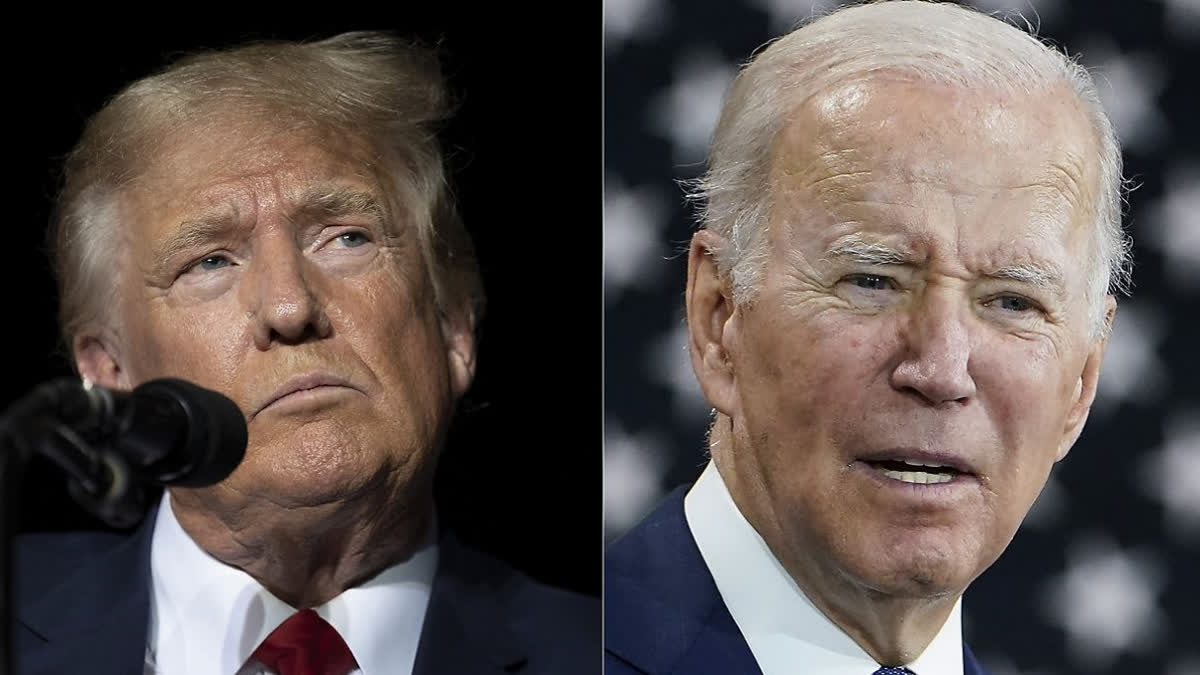Washington: It’s almost Super Tuesday when voters in 16 states and one territory will cast their ballots in the 2024 presidential primaries.
Here’s why the day matters — and why it looks a little different this year. What is Super Tuesday?
It’s traditionally the biggest day nationwide for primary elections and caucuses before the actual Election Day in November. Until now, only one or two states have held primaries or caucuses on the same day.
This Tuesday, voters in 16 different states and one territory (Get it? “Super” Tuesday.) will be choosing who they want to run for president. Some states are also choosing who should run for governor or senator for their state, and some district attorneys, too.
Just as Thanksgiving is usually the fourth Thursday in November, Super Tuesday is almost always the first Tuesday in March.
What happens on Super Tuesday?
Democrats and Republicans vote on who they want to run for president and other offices. And then once those votes are tallied, delegates are awarded.
Delegates, by the way, are people chosen to represent their community at their political party’s presidential nominating convention. They are the ones who actually select the candidate to represent their party on the November ballot.
Candidates need to win a majority of them to pick up their party’s nomination. And no other date has more of those delegates at stake than Super Tuesday.
On the Republican side, 854 of 2,429 delegates — more than 35% — are up for grabs. About 36%, or 1,420 delegates, are in play for Democrats.
Nobody will become the presumptive nominee after Tuesday’s primaries. But President Joe Biden and former President Donald Trump are expected to get close.
Why is this Super Tuesday different?
Normally, it’s a big deal that can make or break a candidate. For example, in 2020, Biden was basically counted out of the race after dismal showings in early primaries. Then he won the South Carolina primary. A few days later, he mounted a swift and stunning comeback on Super Tuesday that really gave everyone a jolt. He ran the board, winning 10 of the 14 states. Other candidates dropped out of the race after his wins. And you know what happened after that.
But that was then. This year there’s not much of a chance for a surprise. Biden is the incumbent and the only major candidate for Democrats. He faces only token opposition. On the Republican side, Donald Trump has won nearly every primary so far and is expected to win big on Tuesday, too.
Is it a foregone conclusion?
Spoiler alert! Don’t read on if you want to be surprised by Tuesday’s likely winners. We know already that Biden and Trump are the front-runners. So it seems like that trend will continue.
There’s always the possibility of an upset. Nikki Haley is still in the race to be the Republican presidential nominee, and she won the District of Columbia primary. But she’s facing tough contests in states where she’s struggled to win support. So it doesn’t look good for her. Biden is far and away leading over Democratic challengers Dean Phillips and Marianne Williamson.
But even though we might think we know what will happen, neither Trump nor Biden will be able to claim the “presumptive nominee” title yet. The earliest that could happen is March 12 for Trump and March 19 for Biden.
Are there important state races to watch on Super Tuesday?
The highest-profile state race in California is the one to succeed the late Democratic Sen. Dianne Feinstein, who died last fall. There’s a crowded field of candidates that includes Democratic Reps. Barbara Lee, Katie Porter and Adam Schiff and Republican Steve Garvey, a former baseball star.
It’s kind of confusing, though: There are two primary elections on the ballot to replace Feinstein. One is to fill the remaining months of her current term and the other is for a full six-year term starting in January 2025.
Keep in mind that California has a “top-two” primary system in which all candidates appear on the same ballot regardless of party, and the top two finishers advance to the general election.
Read More
- US: Nikki Haley Defeats Donald Trump in Washington DC for First Primary Victory
- Trump wins Missouri's Republican presidential caucus
- 'Trump Is Dangerous to Women': Jill Biden as She Takes Centre Stage in Re-Election Campaign
